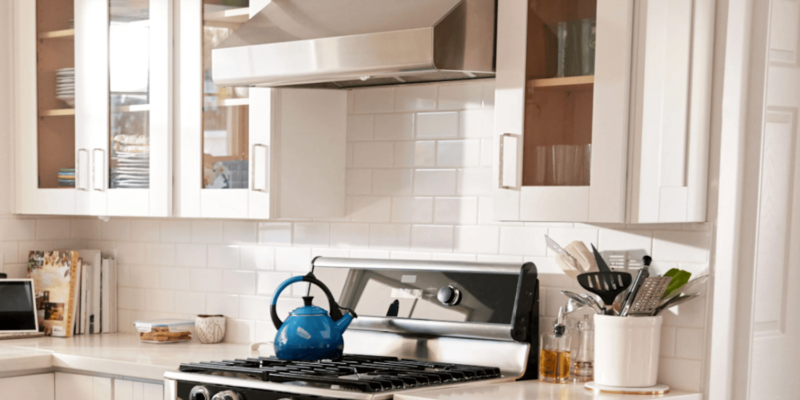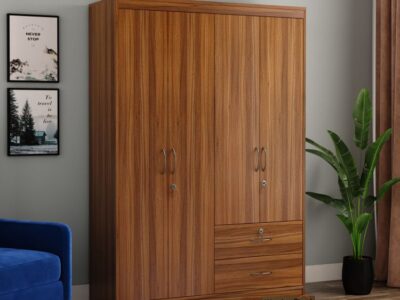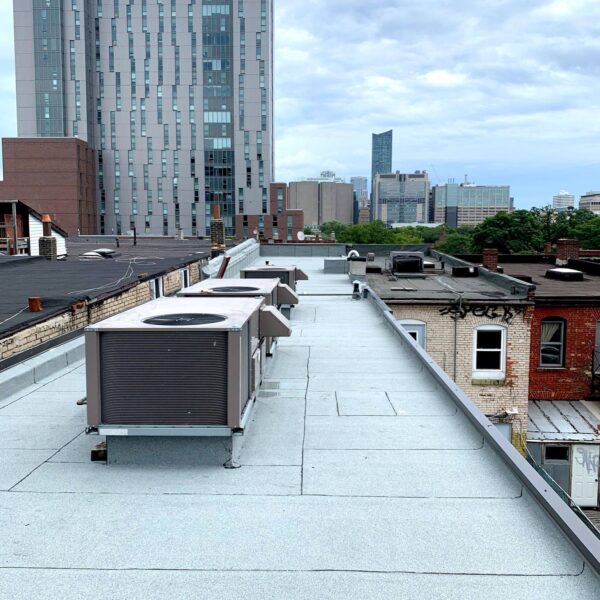
A range hood is a critical appliance in every kitchen, responsible for eliminating cooking odors, smoke, and airborne grease. However, like all appliances, range hoods can malfunction over time, leading to reduced performance or complete failure. Understanding the causes behind these malfunctions can help homeowners prevent them and ensure their range hood operates efficiently for years to come. Whether it’s due to improper maintenance, electrical issues, or mechanical wear and tear, recognizing the early signs of trouble is crucial. If you’re experiencing issues with your range hood, reaching out to a professional range hood repair service in Bronx can make a significant difference in restoring your appliance’s functionality.
Clogged Filters and Their Impact on Performance
One of the most common causes of range hood malfunctions is clogged filters. Over time, grease, dust, and debris accumulate in the filters, obstructing the airflow and reducing the appliance’s efficiency. When filters become clogged, the range hood struggles to ventilate properly, causing odors and smoke to linger in the kitchen. Additionally, a clogged filter puts more strain on the fan motor, which can lead to overheating or eventual failure.
Range hoods typically come with two types of filters: grease filters and charcoal filters. Grease filters trap airborne grease, while charcoal filters help neutralize odors. Both types require regular cleaning or replacement to ensure optimal performance. Ignoring this simple maintenance step can cause the appliance to malfunction, leading to costly repairs down the line. For homeowners unsure about maintaining these filters, a professional technician can easily handle the cleaning or replacement, ensuring the range hood runs smoothly.
Electrical Problems and Power Supply Issues
Electrical problems are another significant cause of range hood malfunctions. These can include faulty wiring, tripped circuit breakers, or issues with the appliance’s power supply. If the range hood suddenly stops working or exhibits intermittent power failures, it’s essential to investigate the electrical connections. Sometimes, the problem can be as simple as a loose wire or a blown fuse, but in other cases, the issue may lie within the internal wiring of the range hood itself.
Attempting to repair electrical issues without the necessary expertise can be dangerous. That’s why it’s crucial to have a certified professional inspect and repair any electrical problems. They can safely address wiring issues, replace damaged components, and restore power to the appliance without risking further damage or potential safety hazards.
Fan Motor Malfunctions and Overheating
The fan motor is the heart of the range hood, responsible for circulating air and removing smoke and fumes from the kitchen. When the motor malfunctions, the range hood may lose its ability to ventilate effectively, causing a noticeable decline in performance. One common issue is motor overheating, which can be caused by excessive use, lack of lubrication, or a buildup of grease and debris around the motor components.
If the fan motor overheats, it may stop working altogether or run intermittently. Additionally, a noisy fan or unusual vibrations could indicate that the motor is struggling to function properly. Ignoring these warning signs can lead to a complete motor failure, requiring a costly replacement. To avoid such issues, regular maintenance and cleaning are crucial. Professional repair services can inspect the fan motor, clean it thoroughly, and make any necessary adjustments to prevent overheating and extend the motor’s lifespan.
Improper Installation and Poor Ventilation Design
Improper installation is another common cause of range hood malfunctions. If the appliance isn’t installed correctly, it may not function as intended. Issues such as inadequate ductwork, improper vent positioning, or incorrect wiring can all affect the range hood’s ability to perform efficiently. Poor ventilation design can also restrict airflow, causing the appliance to work harder than necessary to remove smoke and odors from the kitchen.
A poorly designed ventilation system can lead to backdrafts, where smoke and fumes are pushed back into the kitchen instead of being expelled outside. This not only affects the air quality but also puts additional strain on the range hood. For homeowners dealing with such issues, it’s essential to consult with a professional technician to assess the installation and ventilation system
Blocked Ductwork and Airflow Obstructions
Blocked ductwork is a hidden but significant cause of range hood malfunctions. Over time, grease, dust, and other debris can accumulate in the ductwork, obstructing airflow and reducing the efficiency of the range hood. When the ducts are blocked, the appliance has to work harder to expel smoke and fumes, which can lead to overheating, reduced suction power, and even damage to the fan motor.
In some cases, the blockage may be caused by a physical object, such as a bird’s nest or leaves that have entered the duct from the outside vent. These obstructions not only affect the range hood’s performance but can also pose a fire hazard if left unaddressed. Regular inspection and cleaning of the ductwork are essential to maintaining proper airflow and preventing malfunctions. A professional technician can remove blockages and ensure the ductwork is clear and functioning properly.
Wear and Tear on Internal Components
Like any appliance, range hoods experience wear and tear over time. Internal components such as fan blades, motors, and switches can degrade with frequent use, leading to mechanical failures. Over time, even small issues can snowball into major malfunctions if not addressed promptly. For example, worn-out fan blades can cause the range hood to vibrate excessively, while a malfunctioning switch may prevent the appliance from turning on or off properly.
Routine maintenance can help extend the life of these internal components and prevent costly repairs or replacements. A professional technician can inspect the range hood for signs of wear and tear, lubricate moving parts, and replace damaged components before they fail completely. By addressing these issues early, you can ensure that your range hood continues to function reliably for years to come.
Electrical Issues in Range Hoods
Electrical problems are a common cause of range hood malfunctions. These issues can stem from faulty wiring, blown fuses, or worn-out switches. When the electrical components fail, the range hood may not turn on or operate effectively, leading to poor ventilation. Identifying these problems early can prevent further complications and ensure that your kitchen remains a safe and functional space.
- Wiring issues can disrupt the power supply, causing the range hood to malfunction unexpectedly.
- Regular inspection of electrical connections can help catch potential problems before they escalate.
- A qualified technician should handle electrical repairs to ensure safety and compliance with local codes.
Blocked Ducts and Vents: A Hidden Culprit
Blocked ducts and vents are significant contributors to range hood malfunctions. Over time, grease, debris, and even pests can accumulate in the ductwork, obstructing airflow. This blockage can severely limit the effectiveness of the range hood, causing it to struggle in removing smoke and odors from the kitchen. Regular cleaning and maintenance are essential to prevent this common issue and maintain optimal performance.
- Regular cleaning of ducts can significantly improve airflow and the efficiency of the range hood.
- Homeowners should be aware of signs like reduced airflow, which may indicate blockages.
- A professional inspection can identify and clear hidden obstructions in the ventilation system.
Wear and Tear on Mechanical Parts
Like any appliance, range hoods experience wear and tear over time, leading to various mechanical issues. Components such as fans, filters, and motors can degrade, affecting the unit’s overall performance. Understanding the signs of mechanical failure, such as unusual noises or reduced suction power, can help homeowners address these issues promptly. Regular maintenance can extend the life of these components and enhance the range hood’s efficiency.
- Mechanical parts often require replacement after years of use, particularly if the range hood is used frequently.
- Observing unusual sounds can help detect issues early, preventing more extensive repairs.
- Scheduling routine maintenance can identify parts that are wearing out, allowing for timely replacements.
Conclusion:
Range hood malfunctions can stem from a variety of causes, including clogged filters, electrical issues, motor problems, improper installation, and blocked ductwork. Understanding these common causes can help homeowners take proactive steps to prevent malfunctions and ensure their range hood operates efficiently. Regular maintenance and professional repairs are essential to keeping the appliance in top condition.
If you’re experiencing issues with your range hood, don’t hesitate to contact a trusted expert like range hood repair service in Bronx. Their experience in diagnosing and repairing a wide range of malfunctions ensures that your kitchen remains a safe and comfortable environment. Proper repair and maintenance not only extend the lifespan of your range hood but also improve its performance and keep your home free of smoke, odors, and airborne grease.











